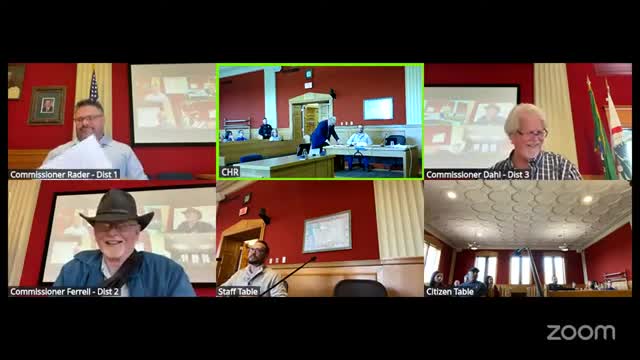Cowlitz County drug court leaders ask commissioners to restore six positions as mental-health tax ends
Get AI-powered insights, summaries, and transcripts
Subscribe
Summary
Drug court managers urged the Cowlitz County commissioners to preserve staff that had been funded by the county's mental health sales tax, proposing a mix of general fund and opioid-settlement interest to cover roughly $396,000 in personnel costs for 2026 if the tax revenues are not available.
Drug court and therapeutic-court leaders asked the Cowlitz County commissioners on the county's budget workshop to restore key behavioral-health positions that were previously paid from the county’s mental health sales tax, which is no longer available to cover those roles.
Dallas DeLagrange, therapeutic court manager, said the program currently supervises roughly 115 clients across drug, mental health, family and juvenile dockets and that staffing cuts would reduce the program’s capacity. "We have 2 drug court case managers that supervise 70 clients, 33 in mental health court, and between the family court and juvenile court, I have 1 case manager that oversees 12 clients," he said.
The request covers six previously tax-funded positions. DeLagrange told commissioners some positions have already been vacant (one since May 2024) and his immediate staffing ask was reduced from six to three full-time positions plus two partial positions by eliminating one vacancy. He presented state and local outcome data, citing high post-program reductions in recidivism and calculated community service and avoided jail-cost figures to justify the positions. "With our 91 people, we are saving $6,630,000 a year by putting people into treatment," he said while noting his cost estimates rely on state averages.
Commissioners asked about alternative funding. Kathy Funk Baxter, finance director, and others suggested using interest income from the county's opioid settlement funds as short-term bridge funding; Baxter estimated about $339,000 in opioid interest income available in the near term. Several commissioners said they would prefer not to rely on opioid settlement money for ongoing salaries but would consider short-term use while other funding is pursued. The board signaled conditional support to use opioid interest to cover public defender and prosecutor positions tied to mental-health work; opinions diverged on using opioid funds for drug court staff.
Dallas DeLagrange and other presenters noted program benefits beyond criminal outcomes — employment gains, community service hours and avoided jail days — and urged commissioners to consider those avoided costs while the board weighs budget tradeoffs.
The board did not take a final funding vote in the workshop. Commissioners asked for follow-up budget detail and for departments to identify any internal offsets or vacant positions that could be repurposed. DeLagrange said the program is pursuing other funding sources and emphasized that some positions are already vacant or partially funded, which narrows the near-term gap.
